Shaina Brown
This could be any one of us that consumes kratom. I know that I for one have become complacent with how easy it is for me to just drive across the bridge and pick up my order or place an order and have it get to me within a day or two. I am grateful, and incredibly lucky.
Shaina Brown from Florida accidentally drove 200 feet into Alabama, where kratom is illegal. Kratom, an herbal supplement known for its potential benefits, had become an integral part of Shaina’s daily routine.
Shaina, a young woman who was on her way home, found herself in an unexpected situation without even realizing it. Unbeknownst to her, she had accidentally entered the state of Alabama. Little did she know, this innocent mistake would soon lead to a series of unforeseen events.
Shaina was unaware that kratom, which she used for its effects, was illegal in Alabama. She continued to travel 200 feet. Kratom, a tree from Southeast Asia, is popular for its mood-enhancing effects.
However, as she crossed 200 feet into the state border, Shaina’s quickly turned into a rude awakening. It was only when she encountered a police checkpoint that she realized something was wrong. She had unintentionally put herself in a precarious situation, unaware of the legal consequences that awaited her.
Time seemed to stand still as the officer reached for her bag, his stern expression betraying no hint of sympathy. She contemplated explaining her situation, hoping that the officer would understand her unintentional mistake.
She informed the Alabama officer about the kratom she bought in Florida, where it is legal. However, the officer still made her life miserable by arresting her. We are talking about a 8 oz package of kratom!
The police arrested her on April 1st. She is currently in an Alabama prison. Alabama’s law charged Brown with felony trafficking instead of simple possession because it categorized kratom incorrectly.
In Alabama, having at least 56 grams of drugs can lead to a charge of trafficking, regardless of intent. The law focuses on the amount of drugs a person has, not their intentions.
The bond was initially established at $1 million. But now, it has been lowered to $250,000. Despite this being a plant, it still deems this sum to be exorbitant. We see murderers receiving lesser sentences and lower bail amounts!
Marshall Price
Marshall Price, found himself entangled in a legal predicament that ultimately led to his arrest. The charges against him stemmed from his involvement with kratom tea, a substance that has gained popularity in recent years. Unfortunately, his actions had severe consequences, as the court sentenced him to a staggering ten years of imprisonment.
Sadly, Marshall died on December 8, 2022, leaving a void in the lives of his loved ones. Marshall died young at 46, an age when people usually have many dreams and goals still ahead of them.
Marshall’s early death made many sad. People thought about what he could have done for society and the memories he could have made with his loved ones. It is a somber reminder of the fragility of life and the unpredictable nature of our existence.
As we take a moment to deeply contemplate Marshall’s story, we are compelled to acknowledge the vast number of individuals who have encountered comparable destinies as a consequence of their association with substances that are considered unlawful or contentious in society. Marshall‘s Prices story reminds us of the many lives greatly impacted by the Drug War’s consequences.
The scope of this issue is far-reaching, encompassing a diverse range of individuals from various walks of life. It extends beyond the boundaries of age, gender, socioeconomic status, or cultural background, affecting people from all corners of society.
The impact of these circumstances extends beyond the individuals themselves, affecting their families, friends, and communities. The drug war has a terrible impact on loved ones, leaving family and friends feeling helpless, guilty, and hopeless.
As we think about Marshall’s story, we must face the ongoing problems that cause this cycle to continue. We can create a supportive atmosphere by promoting empathy and comprehension. This atmosphere will motivate people to actively seek assistance and actively use strategies that tailor to their individual needs.
By expanding our empathy and working towards comprehensive solutions, we can strive to prevent similar fates and offer hope and support to those who need it most. We question the fairness and effectiveness of certain laws and rules. We also wonder if there are alternative approaches to addressing drug problems.
Shania Brown and Marshall Price’s Kratom Arrests Expose the Flaws in Current Legislation Regarding Plant-Based Substances
If you are unable to comply with this request, I kindly urge you to spread this crucial information to others. We should support this plea. We are their Voices!
Any of us could end up in the same situation. Having or growing plants could result in imprisonment for us. Authorities are jailing people for engaging in activities with plants, despite the fact that these actions should not be considered as crimes.
It is worrying that someone could lose their freedom just for having or growing plants. This concept raises numerous ethical and moral questions, as it challenges the fundamental principles of personal liberty and autonomy.
When the government takes away someone’s freedom for a small, harmless action, people question its control over personal decisions. Does a governing body have the right to control what people can have or grow on their own property? This limits personal freedom and questions how much control the government should have over citizens’ private lives.
Furthermore, the idea of criminalizing the possession or cultivation of plants raises questions about the effectiveness and fairness of drug policies. People have used many plants, such as marijuana, for medicinal, spiritual, or recreational purposes for centuries, even though they are currently illegal. Criminalizing these plants not only restricts individual freedom but also perpetuates a black market and associated criminal activities. This raises concerns about the effectiveness of such policies in achieving their intended goals, as well as the potential for unintended consequences.
Also, taking away someone’s freedom for having or growing plants unfairly affects marginalized communities more than others. Drug laws unfairly target minority groups, causing major social and racial inequalities in the justice system. This makes us question if these policies are fair and equal, as they can continue unfairness and harm already vulnerable groups.
Moreover, the criminalization of plant possession or cultivation overlooks the potential benefits and uses of these plants. Many plants have significant medicinal properties or can be used for various industrial purposes. By criminalizing their possession or cultivation, society may be missing out on potential advancements in medicine, agriculture, and other fields. This raises concerns about the potential hindrance to scientific progress and innovation that may result from such restrictive policies.
The thought of someone losing their freedom just for having or growing plants is very worrying on many levels. It questions personal freedom, fairness of drug policies, creates social and racial gaps, and may slow down scientific advancement.
It is crucial to critically examine and reconsider the laws and regulations surrounding the possession and cultivation of plants to ensure a more just and equitable society. It highlights a flaw in our legal system, where the punishment does not fit the crime. The criminalization of plant-related activities not only infringes upon personal liberties but also perpetuates a cycle of unnecessary imprisonment.
Plants, in their various forms, have been an integral part of human civilization for centuries. They provide sustenance, medicine, and contribute to our overall well-being. It is unfortunate to witness individuals losing their freedom for engaging in activities involving plants. Plants have been revered and utilized by societies throughout history.
The War On Drugs
Both Shaina Brown & Marshall Price were both victims of the war on drugs, so we need to re write these laws. These are and were human beings that are being treated like common criminals for choosing to use plants over pills.
Ultimately, we aim to ensure that we do not unjustly imprison anyone for their involvement with plants. This is about human rights, personal freedom, and recognizing that making plant-related activities illegal is unfair. It is also an excessive response that goes against the principles of a fair and equal society. The War on Drugs and people has to end now!
Conclusion
The goal is to make people aware and support a kinder and more logical way of dealing with plant-related crimes. In today’s society, it is crucial that we critically examine the laws and policies that result in the imprisonment of individuals for engaging in non-violent activities related to plants. By sharing this information and engaging in discussions surrounding this issue, we can shed light on the urgent need for reform within our legal system and emphasize the significance of justice and fairness.
One of the primary concerns that arises when considering the imprisonment of individuals for non-violent plant-related activities is the disproportionate impact it has on certain communities. It is no secret that marginalized groups, such as people of color and those from low-income backgrounds, often bear the brunt of these laws and policies. This raises questions about the fairness and equity of our legal system, as it seems to perpetuate systemic inequalities and further marginalize already vulnerable populations.
Moreover, imprisoning individuals for non-violent plant-related activities raises ethical and moral dilemmas. Many argue that it is fundamentally unjust to punish someone for engaging in activities that do not harm others or society at large. This perspective highlights the importance of reevaluating our priorities as a society and considering alternative approaches that prioritize rehabilitation and harm reduction over punitive measures.
Additionally, the criminalization of non-violent plant-related activities can have far-reaching consequences beyond the individuals directly affected. Families and communities are often torn apart when loved ones are incarcerated for such offenses, leading to emotional and financial burdens that can perpetuate cycles of poverty and instability. By questioning these laws and policies, we can advocate for a more compassionate and holistic approach that takes into account the broader impact on society.
Furthermore, it is essential to recognize the potential benefits that can arise from reforming these laws and policies. By shifting our focus away from punitive measures and towards alternative approaches, we can redirect resources towards addressing more pressing issues, such as violent crimes or public health concerns. This reallocation of resources can lead to a more efficient and effective legal system that better serves the needs of society as a whole.
In conclusion, sharing information and engaging in discussions about the imprisonment of individuals for non-violent plant-related activities is crucial for advocating for reform and promoting justice and fairness within our legal system. By examining the disproportionate impact on marginalized communities, questioning the ethical implications, considering the broader consequences, and recognizing the potential benefits of reform, we can work towards a more equitable and compassionate society.
Visit MisTeaz linktree for more information about how you can help!
- #FreeShainaBrown The War on Plants Documentary
- #JusticeforMarshallPrice Marshall Price Justice Fund
- Change.org petition for Marshall Price
- And for weekly updates and advocacy check out the kratom guy show on Spotify
- Kratom Story Podcast
- @KratomGuyShow
- @MisTeaz aka Tha Tea Bishh
- Kratom Batch
- Check Out TikTok for more advocacy!
- Free Thought Project
- Misteaz Merch
Written By VENUS KRATOM
Free Thought Project: Supporting Shania Brown’s Liberation with #freeshaniabrown.
Free Thought Project: Free Shania Brown #freeshaniabrown
Justice for Marshall Price: Holding Arkansas Accountable.
Justice for Marshall Price: Hold Arkansas Accountable.
Shaina Brown’s Mugshot for Kratom Possession in Alabama Prison.
Shaina Brown’s Mugshot in Alabama Prison for Kratom Possession.
Arkansas Seeks Justice for Marshall Price: Marshall Price with Four-Leaf Clover #justiceformarshallprice.
Arkansas Justice for Marhsall Price. Marshall Price holding a 4 leaf clover #justiceformarshallprice
Vintage Portrait: Woman with Cat and Cannabis Plant, circa 1910.
1910 lady with cat and cannabis plant

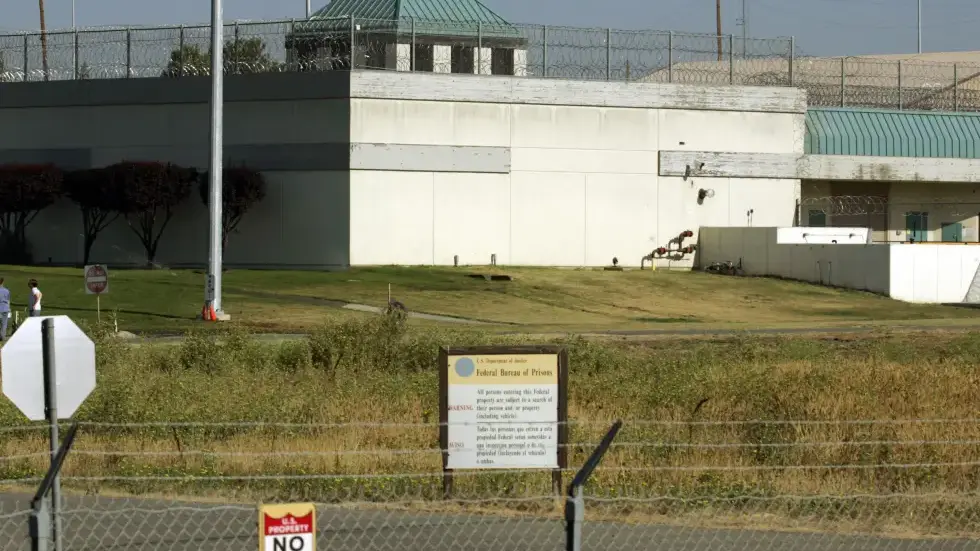
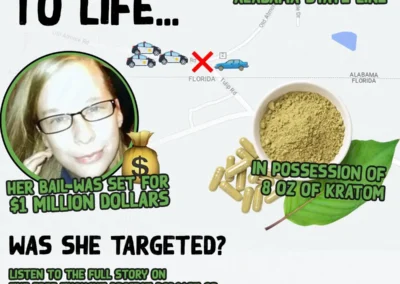
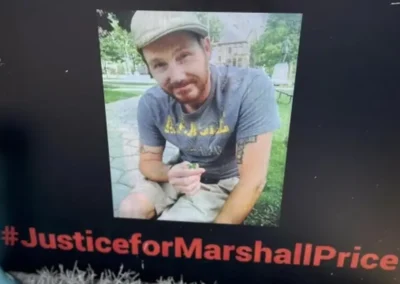

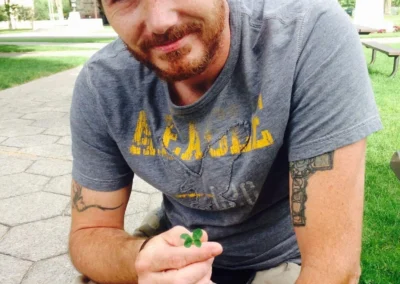
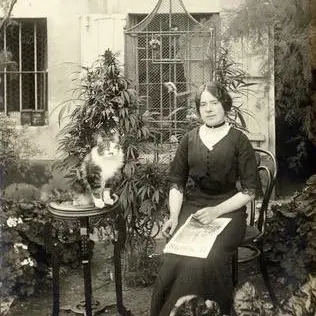
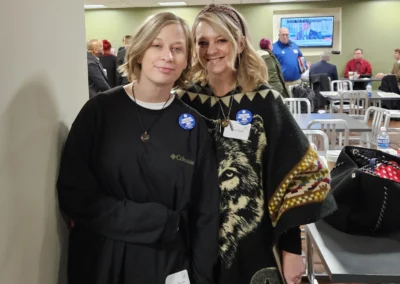
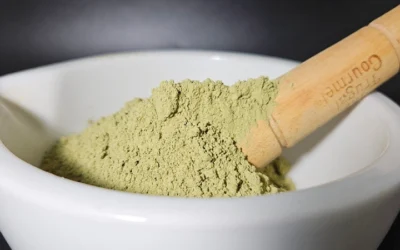

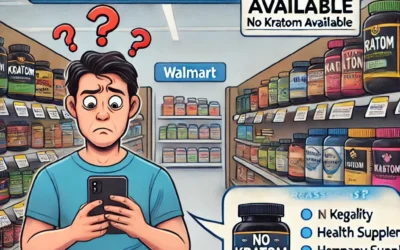

0 Comments